Rare ancient scroll found in Israel Cave of Horror
- Published
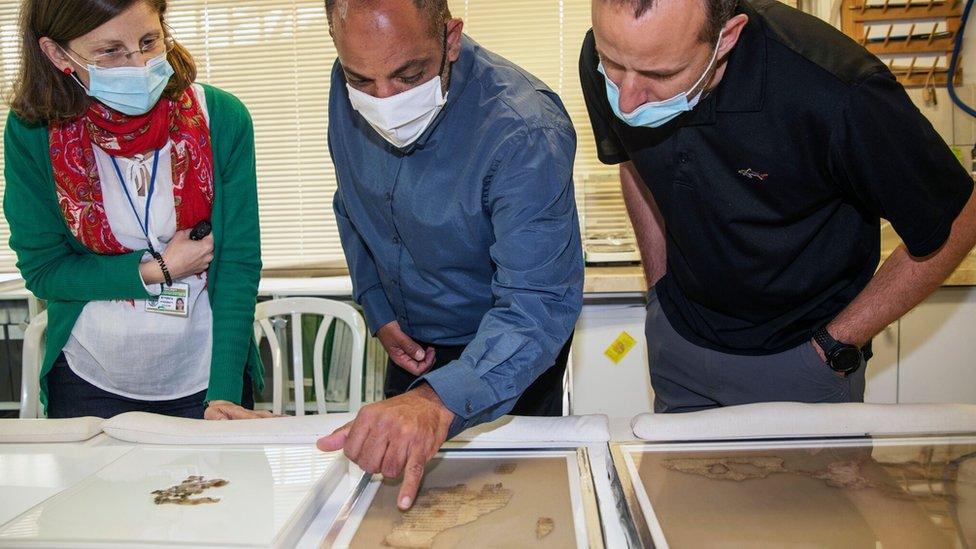
The pieces of parchment contained verses from the Book of the Twelve Minor Prophets
Fragments of a Biblical scroll and other relics have been found in what officials call an "historic discovery" in desert caves in Israel.
The dozens of pieces of parchment were written in Greek, with just the name of God appearing in Hebrew.
The scroll is believed to have belonged to Jewish rebels who fled to the hills following a failed revolt against Roman rule in the 2nd Century.
They were found during an operation to prevent caves in the area being looted.
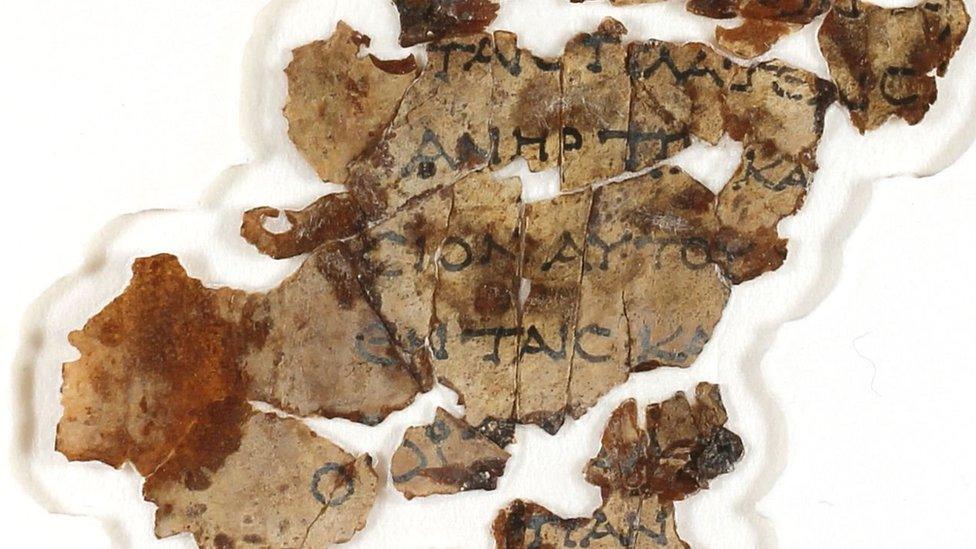
The words were written in Greek, apart from that of God, which was in Hebrew
It is the first such find of its kind since the early 1960s when similar fragments and some 40 skeletons were discovered at the site which became known as the Cave of Horror.
The newly found remnants contain verses from the books of Zechariah and Nahum, which form part of writings known as the Book of the Twelve Minor Prophets.
The parchment had been written in Greek, the language adopted after the conquest of Judea by Alexander the Great in the 4th Century BC. The name of God, though, exclusively appears in Hebrew.
Israel Antiquities Authority's (IAA) director Israel Hasson said the scroll and other relics found there were "of immeasurable worth for mankind".
A cache of rare coins from the period of the Jewish revolt, a 6,000-year-old mummified skeleton of a child and a large intact basket dating from about 10,500 years ago were also discovered at the site.
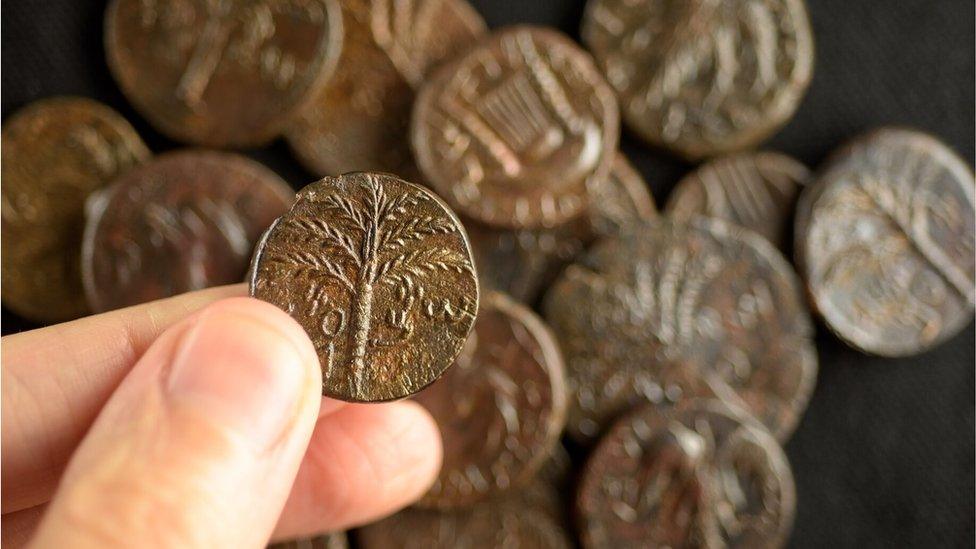
Coins minted by Jewish rebels and used during a short-lived revolt against Rome were found
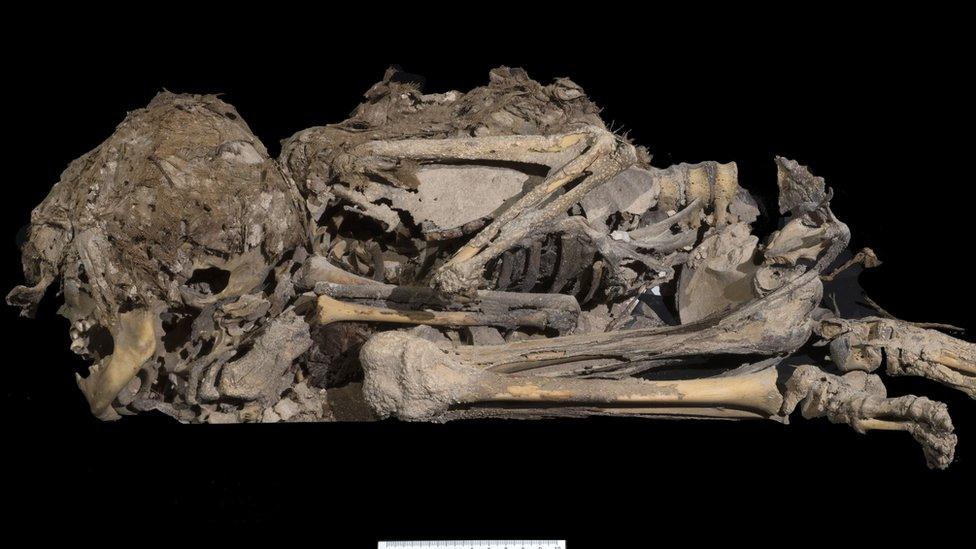
The mummified skeleton of a child, dating back about 6,000 years, was also discovered
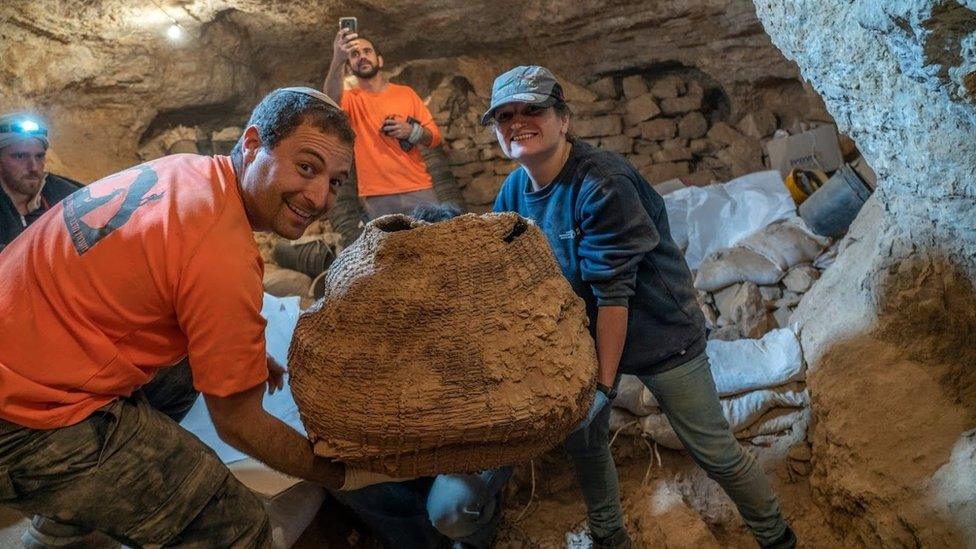
A large basket, believed to possibly be the world's oldest, was among the excavated relics
Located some 80m (260ft) beneath a cliff-top, the cave is practically inaccessible and could only be reached by teams abseiling down to it.
The expedition was part of what the IAA called a "complex and challenging" operation to protect the network of caves from antiquities looters.
Searches of the cliffs and caves in the Judean Desert have yielded a treasure trove of finds over decades, including the world famous Dead Sea Scrolls, the oldest known copies of Biblical books.
Related topics
- Published29 January 2021

- Published3 September 2020
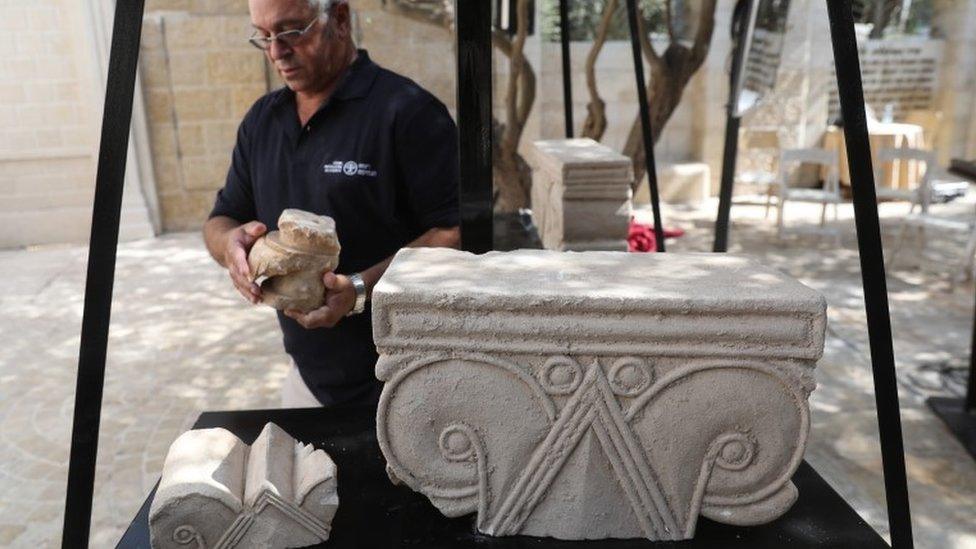
- Published18 July 2019
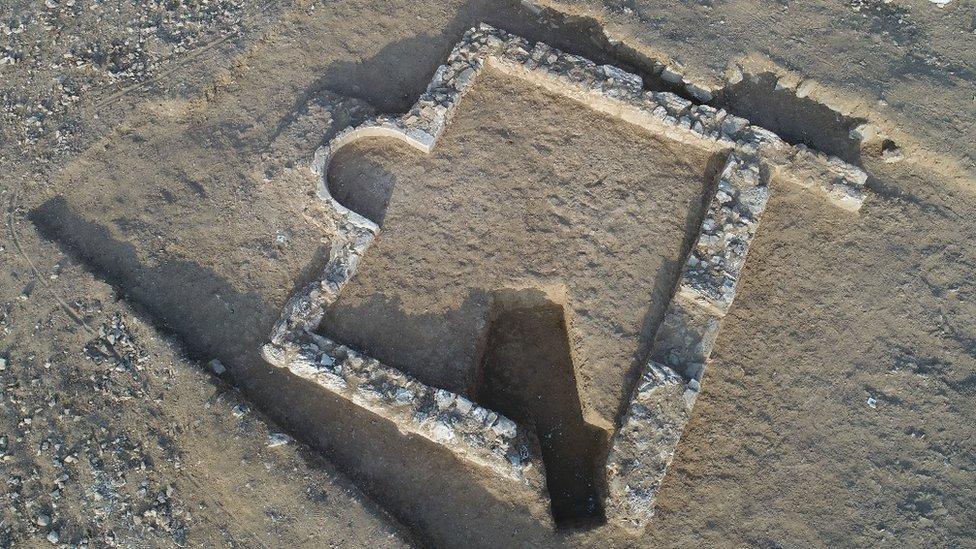
- Published15 September 2018
